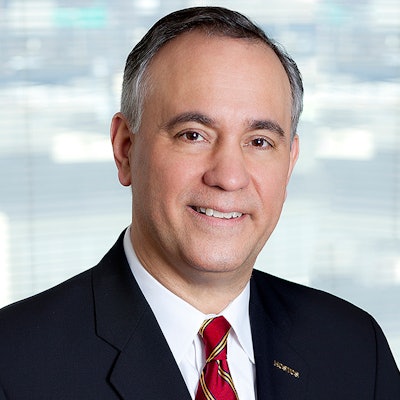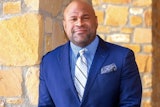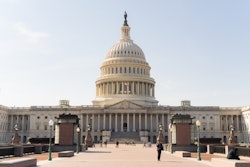In the wake of an appeals court decision maintaining the tenuous status of the Deferred Action for Childhood Arrivals (DACA) program, experts and advocates met on Monday to publicly discuss the consequences of the ruling and how higher education can react.
The panel, convened by the Presidents’ Alliance on Higher Education and Immigration in partnership with TheDream.US, fwd.us, and the UCLA Center for Immigration Law and Policy, agreed that the future of the program is precarious.
DACA provides temporary, renewable protection from deportation for DREAMers, undocumented people who were brought to America at a young age and have lived in the U.S. for most of their lives. Created in 2012 by President Barack Obama through executive action, the controversial program has allowed DREAMers to obtain work permits, enabling them to afford higher education. In some states, DACA recipients can qualify for in-state tuition and receive state-funded grants and loans. Although the number of DACA recipients studying at colleges and universities or working as faculty or staff is unknown, the Presidents’ Alliance estimates that over 427,000 students are undocumented, roughly 2% of all students in American higher ed.  Dr. Félix V. Matos Rodríguez
Dr. Félix V. Matos Rodríguez
Last week’s ruling, by the U.S. Court of Appeals for the Fifth Circuit, affirmed a lower court decision that DACA is illegal. However, acknowledging that DACA “has had profound significance to recipients and many others in the 10 years since its adoption,” the court stayed its ruling, allowing the program to continue and current recipients to renew their status. However, no new applicants may receive protection and the future of the program is uncertain. Next, a lower court will consider a Biden administration regulation designed to protect DACA in a case that could go to the Supreme Court in the 2023-24 term.
The panel described the decision as “a sobering moment,” and argued that a permanent legislative solution is needed. Whether one can be found after decades of failure to enact comprehensive immigration reform is unclear. However, panelists agreed that the world of higher education is uniquely well-positioned to address the issue.
“Colleges and universities are places of civic engagement, are places of knowledge, and are places of hope,” said Dr. Félix V. Matos Rodríguez, chancellor of the City University of New York and a member of the Presidents’ Alliance. “In those three things, we can play a role in this moment in history.”
Colleges can engage with federal and state governments and show them the benefits of DACA and why the students, faculty, and staff that it covers should be protected in a permanent way, said Rodríguez. Schools can be trustworthy sources of information for affected students so that they can make good decisions for themselves and their families. And institutions can support undocumented students with advising, mental health resources, and creative approaches to questions of employability.
There are many specific actions that administrators can take, according to Diego Sánchez, director of policy and strategy for the Presidents’ Alliance. Leaders can send public campus-wide emails of support and reach out privately to DACA recipients and other undocumented students. They can attend a webinar on effective practices to support undocumented students being hosted by the Presidents’ Alliance next week. And schools can participate in the 7th annual I Stand With Immigrants Day of Action on October 28th, which will focus on calling for Congress to pass bipartisan legislation for DREAMers this year.
The time for action is now, in the lame-duck session of Congress that will start after the midterm elections, said Gaby Pacheco, program director of advocacy, development, and communications for TheDream.US. Republicans may take over the House of Representatives and the Senate in the new year, dimming the prospects for a solution. Prospective Speaker of the U.S. House of Representatives Kevin McCarthy has said that any offers of “amnesty” to undocumented people would be a “non-starter.” Without a swift resolution, the issue could linger for years to come.
However, Pacheco emphasized that there will be many competing legislative priorities in a small-time frame and that compromise will be necessary. “We are not naïve, and we understand that a deal will not be perfect,” said Pacheco. “We’re going to push as much as we can to get the most amount of people protected. But the reality is, there has to be a balance on how we’re going to negotiate these things. We’ve learned in the past that the bigger these [legislative] packages are, the more likely that they’re going to fail.”
According to Pacheco, the White House has been showing support for a permanent solution as soon as possible and has asked congressional leadership to not make the perfect the enemy of the good. The White House has also been looking into what it can do should DACA be terminated by the Supreme Court.
Ultimately, the panel concluded that higher education and its leaders have an important role to play in the ongoing fight.
“We need every single one of you to use your voice, your power, and your moral authority,” said Pacheco.















